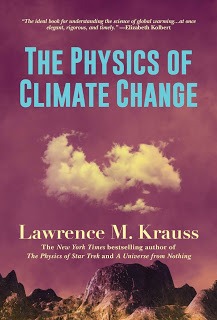Sabine Hossenfelder in Back Reaction:
 In the past years, media coverage of climate change has noticeably shifted. Many outlets have begun referring to it as “climate crisis” or “climate emergency”, a mostly symbolic move, in my eyes, because those who trust that their readers will tolerate this nomenclature are those whose readers don’t need to be reminded of the graveness of the situation. Even more marked has been the move to no longer mention climate change skeptics and, moreover, to proudly declare the intention to no longer acknowledge even the existence of the skeptics’ claims.
In the past years, media coverage of climate change has noticeably shifted. Many outlets have begun referring to it as “climate crisis” or “climate emergency”, a mostly symbolic move, in my eyes, because those who trust that their readers will tolerate this nomenclature are those whose readers don’t need to be reminded of the graveness of the situation. Even more marked has been the move to no longer mention climate change skeptics and, moreover, to proudly declare the intention to no longer acknowledge even the existence of the skeptics’ claims.
As a scientist who has worked in science communication for more than a decade, I am of two minds about this. On the one hand, I perfectly understand the futility of repeating the same facts to people who are unwilling or unable to comprehend them – it’s the reason I don’t respond when someone emails me their home-brewed theory of everything. On the other hand, it’s what most science communication comes down to: patiently rephrasing the same thing over and over again. That science writers – who dedicate their life to communicating research – refuse to explain that very research, strikes me as an odd development.
This makes me suspect something else is going on. Declaring the science settled relieves news contributors of the burden of actually having to understand said science. It’s temptingly convenient and cheap, both literally and figuratively. Think about the last dozen or so news reports on climate change you’ve read. Earliest cherry blossom bloom in Japan, ice still melting in Antarctica, Greta Thunberg doesn’t want to travel to Glasgow in November. Did one of those actually explain how scientists know that climate change is man-made? I suspect not. Are you sure you understand it? Would you be comfortable explaining it to a climate change skeptic?
More here.
